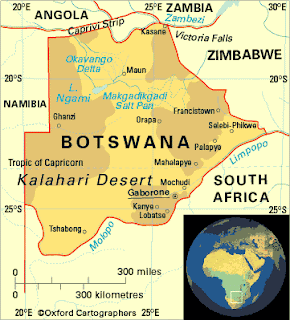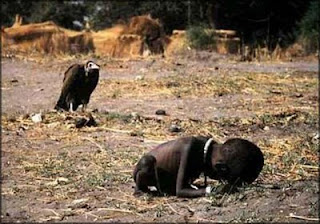Dumela bomma le borra! (Hello ladies and gentlemen!)
After Setswana lessons the group meets with professors here at the university who specialize in different areas of AIDS. On Wednesday Dr. Chipfakacha gave a holistic presentation looking at not only the science behind the disease and why the specific strand in Africa is causing the increased prevalence, but also the sociocultural factors that cause the disease to continue to spread despite the billions of dollars being spent to combat the disease by both the government and the international community. His presentation was fascinating and he was easily the most interesting lecturer I have seen at least for a very long time. Following him, Dr. Maundeni gave a presentation on specifically why men are at risk for getting HIV here, a topic that is usually ignored (most AIDS research focuses on gender roles specifically for women and how their status leaves them less powerful to control their own sexual lives). It was a really interesting perspective and one of the leading factors that really resonated with me is how boys here really don't get any informal education from their parents. When a girl starts menstruating it promotes conversation about changes with puberty and what it all means, but for boys the topic never really comes up and actually westernization and urbanization ended the tribal sex education that was already available. Boys used to have initiation ceremonies where men would teach them about how to be a man in their village and this was the opportunity to talk about sex, but these ceremonies aren't held any more and were replaced with the Christian notion of abstinence, which is a very hard model to push on men who have learned from the media and their peers (mostly due to the absence of a father figure) that being a man means being sexually promiscuous and sleeping with a lot of girls (this notion isn't too different in the US even with comprehensive sex education). On Thursday, Dr. Pitso gave a presentation on the sociocultural factors leading to multiple concurrent sexual partnerships (MCSPs), one of the issues that is spurring the epidemic here. Dr. Ntseane also met with us on Thursday and discussed how indigenous knowledge systems impact HIV/AIDS and how the failure of the current fight against AIDS is the lack of acknowledgment of traditional values and customs. At some point I will write about how my view on AIDS has radically changed based on what I've learned so far, but for now I will just say that my notions of AIDS and why it is so prevalent have completely changed.
Wednesday night we walked 15 minutes to the main mall to shop and eat dinner and being there I was amazed at how I would forget that I was in Africa. The mall was very nice and there was a lot of stuff there and I kept running into white people, all of whom were volunteering and staying at the university, including a girl who lives in Ohio and a girl who worked at the White House. In general, it's amazing how many white people are here, I really came into this trip thinking I would be a minority, which is true and it has been interesting how much attention the group gets when we go out in public, but it hasn't felt overly uncomfortable or unsettling. The one awkward moment was when we were walking to the mall and street vendors along the side of the road started yelling "We love whitey" and wanted to give all the girls hugs. It was amusing because if I were to go into any predominantly black neighborhood (the one in my mind at the time was Southeast DC) and go around saying "I love blackie" while trying to hug people I would be shot instantly. I've never actually heard anyone refer to me as "whitey" so it was just interesting to hear it said. At dinner I ate an avocado and bleu cheese burger and it was actually one of the most delicious things I've ever eaten.
Since getting here I've suddenly become a futbol fan again (I really got excited during the last World Cup and I feed off of the excitement of people around me). Thursday night I watched Egypt win an amazing game against Italy 1-0 and was really excited for everyone here because it was the reigning world champions losing to an African nation (something Italy has never done) and everyone here went nuts. I still think that there is a lot of lag time during soccer games, but every shot has me on the edge of my seat so perhaps I'll keep watching when I come home. My other new habit will be tea time mid morning as a way to take a break and rejuvenate because that has been doing wonders to my energy level.
Also on Wednesday and Thursday, the potential organizations who we will be working with for the next 3 weeks came in and gave presentations. We ranked the top 3 we'd like to work for. I'll name each organization and tell you a little about what they do below:
SOS Children's Village: An orphanage for children who have lost their families to HIV/AIDS, the center provides them with a family structure and a house mother, leadership programs and care for children who were infected with the disease during child birth.
Lifeline: provides free anonymous counseling services either by phone or in-person, the organization also trains counselors and provides counseling services to other NGOs. There are over 270 locations globally.
Salvation Army Psychosocial Support Initiative (SAPSSI): A coalition of 4 churches that sponsor peer mentor programs, provide counseling services, promote leadership through community development and provide day care centers for kids under 5. The goal is to raise kids so that they don't take up practices that leave them more susceptible to HIV.
Baylor International Pediatric AIDS Initiative: Works with the government of Botswana to provide medical services and counseling to kids who are HIV positive. They work to break down social family barriers by having the entire family be a part of the testing process so that the children are able to take responsibility for their treatment. They also provide an intensive follow-up clinic where a social worker, psychologist and nutritionist meet with the child at their home to see what their home life is like.
Botswana Network of AIDS Service Organizations (BONASO): An umbrella organization for NGOs working to combat AIDS that focuses on policy influence and advocacy, capacity building, information and dissemination, resource mobilization, and research and monitoring of NGO activity to determine its successfulness. This organization was my first choice and where I will be working. I was interested in it because I will have the opportunity to work with a number of NGOs and would like to be part of the both the training and capacity building aspect, and the policy influence side. All in all I think working with them will help to give me a very holistic and in-depth understanding of how an NGO functions. It is also a good fit because a lot of the other organizations really focus on counseling because most of the people on this trip have a counseling background, but because I don't I was really more focused on NGO experience. I'm also really excited because the girl who gave the presentation is a peace corps volunteer who just extended for a third year here to continue her work with BONASO and I'm really looking forward to picking her brain about her Peace Corps experience and what advice she has about that entire process.
Kagisano Women's Shelter: Provides counseling and shelter for women in violent relationships. Also provides counseling for the perpetrators, which I thought was an interesting way to deal with domestic violence.
Botswana National Youth Council: Umbrella organization for national NGOs focusing on youth development. They coordinate projects and provide a lot of training and capacity building projects. They also hold training for programs concerning adolescent reproductive health, an important step in combating HIV/AIDS.
Makgabaneng: A radio soap opera using the CDC's MARCH (modeling and reinforcing to combat HIV/AIDS) model to influence behavior by providing realistic characters who deal with HIV/AIDS issues (edutainment). The organization also hosts reinforcement activities including free testing sites and youth programs to encourage safer sex practices.
All of the organizations seem really interesting and I look forward to hearing about everyone's individual experience with their organization.
Ke a go rata thata! (I love you very much!)
Go siame! (goodbye)



















